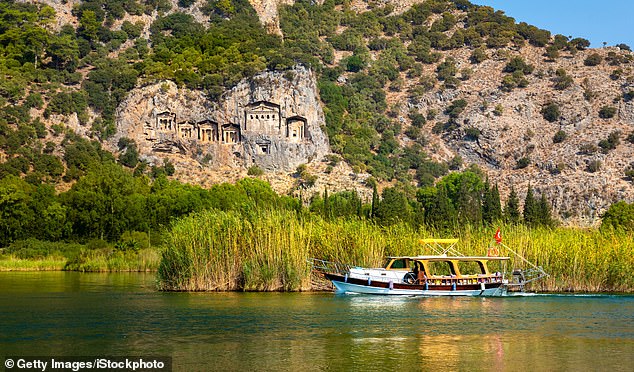The search for an elderly British man who went missing on a trip to ancient Turkish tombs has ended in tragedy.
Following a three-day search in and around the ancient tombs of Kaunos in Turkey for the 79-year-old, investigators found a body.
The man was reported missing by his daughter, who he travelled with to Çandır, a village in Muğla’s Köyceğiz district in southwestern Turkey, for a holiday together on July 26.
At 10.30am that day, her father began a trip by rowboat to the nearby rock-cut temple tombs of Kaunos, also known as the Lycian rock tombs, but she lost contact with him and has not heard from his since.
Following his daughter’s report, Turkish authorities launched a search for the man with a 19-person team, consisting of the Köyceğiz Gendarmerie District Command, Muğla AFAD and an NGO.
An investigation is now underway to understand exactly how the man went missing.
Autopsies will also be carried out to determine the body’s exact cause of death.
Between Dalyan and Kaunos, there are more than 150 rock-cut tombs marking the resting place of the Lycian elite.

Close-up of ancient tombs on the Dalyan river in Turkey, including the largest unfinished tomb

Found on the banks of the Dalyan River, the burial sites date back to the 4th century BC and can be viewed from the water via boat trips

The impressive ruins of the ancient trading city of Kaunos be found across the river from the cliffs, in modern-day Dalyan
Found on the banks of the Dalyan River, the burial sites date back to the 4th century BC and can be viewed from the water via boat trips.
The impressive ruins of the ancient trading city of Kaunos be found across the river from the cliffs, in modern-day Dalyan.
The archeological site has many well-preserved structures, including a Hellenistic theatre, a Roman bath, and temples.
The rock-cut facades of the graves resemble the fronts of Hellenistic temples, complete with a pair of Ionian pillars, a triangular pediment, and an architrave with toothed friezes, according to the World Heritage Convention.
MailOnline has contacted the UK’s Foreign Office for comment.











